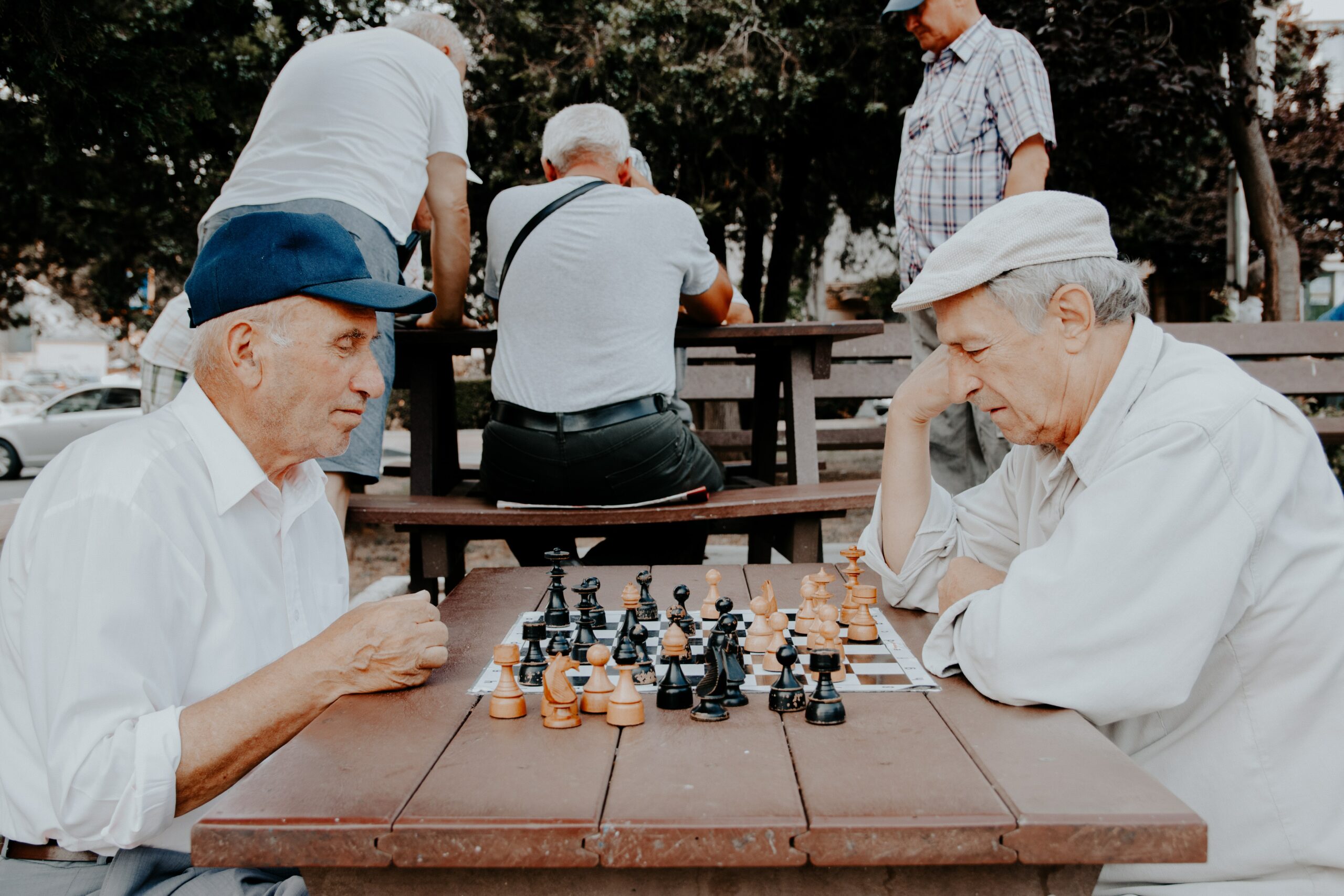As we age, certain cognitive abilities, including reasoning and memory, naturally decline. The hippocampus region of the brain shrinks, subtle and selective brain cell loss occurs, disease causes brain tissue damage, and the myelin surrounding nerve fibers deteriorate. Such age-related brain changes can greatly influence how information is recalled and stored, and it’s brain health that’s half of the equation in being able to independently stay at home longer. However, such mental changes can often be lessened or mitigated by practicing one rule: Use it or lose it.
Science has proven that the brain never ceases to develop and change. It’s a myth that older people can’t or shouldn’t learn new things.
The “use it” rule is all about brain stimulation. Just like your triceps or biceps, your brain loses its strength if you don’t exercise it. The older, more routined, and knowledgeable we get, the less we use our brain in everyday actions that’ve become second nature. So, older populations not only can learn new things… they should.
Just like physical exercise, mental exercises are most effective when they’re equal parts novel and challenging. In other words, if your brain is bored or finds a task second nature, then it’s not getting a thorough workout. You may love crosswords, but, if you’ve done them daily for the past few years, then your brain isn’t being utilized and stimulated in the same way it would be if you were doing something you’ve never done before. Keep doing what you love, but do remember that variety is a key ingredient in brain exercises.
Try out the following mind games and brain teasers to help add variety and newness to your brain fitness.
1. Get Crafty
Whether it’s a scrap book, sun-catcher, jewelry, adult coloring book, painting by number, holiday item, or sewing, get to crafting. It’s a hands-on activity that helps dexterity. It’s an occupier for anxiety and stress. And, it gets the creative juices flowing in the brain. Done as a group, it also helps encourage meaningful and interactive socialization with others.
Be sure to pick a craft that’s fun, safe, and accomplishable. Tasks that are too hard may be more of a frustration than a benefit.
If you’re not big on creating from scratch, think about doing a jigsaw puzzle. It can be glued and framed as a keepsake or for gifting.
2. Solo Memory Games
Make a grocery list. Try to put all the items in the cart without looking at the list. Once you’ve collected all the items that you remember, then look at the list to see how well you did.
Dial out phone numbers instead of using stored numbers, change up your travel routine to learn a new route, and do things in a different order than your usual.
Watch and recall is also a great memory game. Snap a picture of an interesting target and look away. Wait an hour before you try to recall all the details you can about the subject in the picture – what color is it, where’s it at, what’s it doing, etc. Look at the picture to see how many details you got right.
There’s also the traditional memory game of sorting tangibles. It’s usually played with pairs of cards or game pieces laid out on a flat surface upside down. You flip one piece up and try to recall the location of it’s match. If you get it right, then remove the pair, and wrong answers are turned back facedown. Pick another card, continuing until you’ve paired them all.
Memory games can even be download from the App Store. Cracker Barrel Games, for example, has trivia, match, and spot the difference on their highly-rated gaming app.
3. Solve The Problem
Solution-based games are about forcing the brain to think in a logical way to answer a problem. You can help out a school-aged child with homework. Watch and actively participate in game shows. Try out a real-life or online escape room challenge. Grab a logic puzzle book or download some Apps.
In a group, try to play board games that are plotted or question and answer, such as Scrabble, Pictionary, Gestures, Connections, or Trivial Pursuit.
AARP’s Brain Games is specifically designed for seniors. The well-known non-profit has a vast selection of crosswords, strategy, and brain teasers. You can play solo or in an online group against others.
Sharp Brains is another interesting platform for brain games. This one has an impressive collection of free teasers, puzzles, and recognition games, and it offers a library of reading materials to help you learn about the brain and exercising it.
4. Learn Something New
Take a music lesson. Learn a new language. Read a book and write a review about it on Goodreads. Take a cooking class. Go to a dance class. Learn yoga. Think about the things you’ve always wanted to learn but didn’t feel it was of immediate value or that you had time.
In closing, the above four categories leave a lot of room to shuffle new and exciting brain activities into any senior’s daily routine. Whether it be online, on paper, or out of a box, as long as the brain activity gets you thinking, then it’s using, not losing. Keep in mind that participation in mental activities just once per week has been found to reduce the risk of dementia by seven percent.






